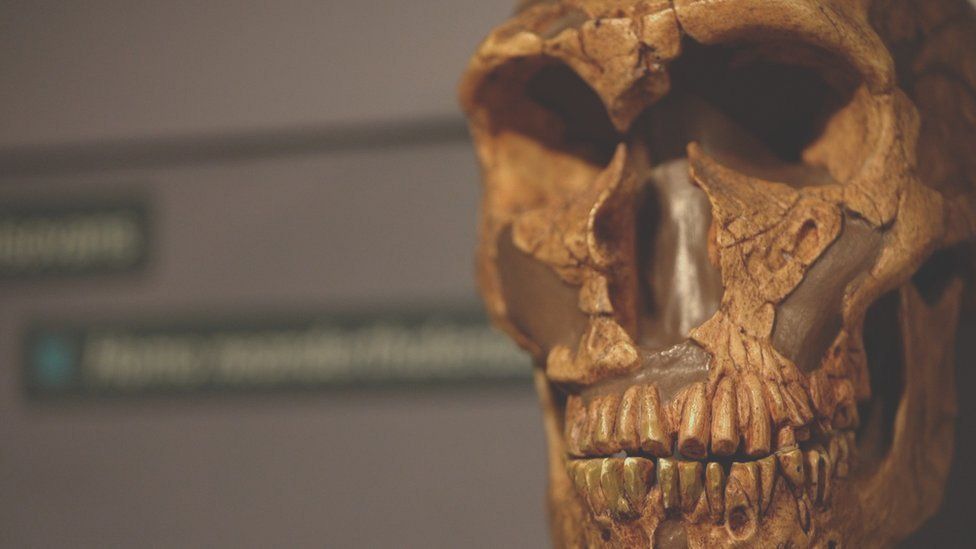Sweden’s Svante Paabo wins the prize for discoveries on humanity’s extinct relatives.

The Nobel Prize in Physiology or Medicine has gone to Sweden’s Svante Paabo for his work on human evolution.
The Prize committee said he achieved the seemingly impossible task of cracking the genetic code of one of our extinct relatives – Neanderthals.
He also performed the “sensational” feat of discovering the previously unknown relative – Denisovans.
His work helped explore our own evolutionary history and how humans spread around the planet.
The Swedish geneticist’s work gets to the heart of some of the most fundamental questions – where do we come from and what allowed us, Homo sapiens, to succeed while our relatives went extinct.
Say good morning to our new medicine laureate Svante Pääbo!
Pääbo received the news while enjoying a cup of coffee. After the shock wore off, one of the first things he wondered was if he could share the news with his wife, Linda.
Photo: Linda Vigilant pic.twitter.com/l27hnzojaL
— The Nobel Prize (@NobelPrize)
In the 1990s, research on working out the human genetic code was taking place at pace. But that relied on fresh samples of pristine DNA.
Prof Paabo’s interest was in the old and degraded genetic material from our ancestors. He was, for the first time, able to sequence DNA from a 40,000-year-old piece of bone.
Those results showed that Neanderthals – who mostly lived in Europe and Western Asia – were distinct from both modern day humans and chimpanzees.
His work focused on hominins – the group of modern humans that includes us, Homo sapiens, but also our extinct relatives.
“By revealing genetic differences that distinguish all living humans from extinct hominins, his discoveries provide the basis for exploring what makes us uniquely human”, the Nobel committee said.
Further comparisons between Neanderthal DNA and humans from around the world showed their DNA was a closer matcher to humans coming from Europe or Asia.
This tells us that Homo sapiens had sex and children with Neanderthals after migrating out of Africa around 70,000 years ago.
And you can still see the legacy of that today. Between 1-4% of modern human DNA comes from our Neanderthal relatives and this even affects our body’s ability to respond to infection.
Cave finger
The next seismic contribution to human origins came in 2008. Scientists had found a 40,000-year-old finger bone in the Denisova cave, in Siberia.
Prof Paabo was able to sequence a sample of DNA and the results showed it was a previously unknown hominin – known as Denisovan.
And it turned out Homo sapiens bred with these Denisovans too. In parts of South East Asia up to 6% of people’s DNA is Denisovan.
Prof Paabo only heard the news this morning when he was called by Thomas Perlmann, the secretary for the Nobel Committee for Physiology or Medicine.
“He was overwhelmed, he was speechless. Very happy,” said Prof Perlmann.
He wins the 10m Swedish kronor (£800,000) prize.
Follow James on Twitter

Previous winners
- 2021 – David Julius and Ardem Patapoutian for their work on how the body senses touch and temperature.
- 2020 – Michael Houghton, Harvey Alter and Charles Rice for the discovery of the virus Hepatitis C.
- 2019 – Sir Peter Ratcliffe, William Kaelin and Gregg Semenza for discovered how cells sense and adapt to oxygen levels
- 2018 – James P Allison and Tasuku Honjo for discovering how to fight cancer using the body’s immune system
- 2017- Jeffrey Hall, Michael Rosbash and Michael Young for unravelling how bodies keep a circadian rhythm or body clock
- 2016 – Yoshinori Ohsumi for discovering how cells remain healthy by recycling waste
- 2015 – William C Campbell, Satoshi Ōmura and Youyou Tu for anti-parasite drug discoveries